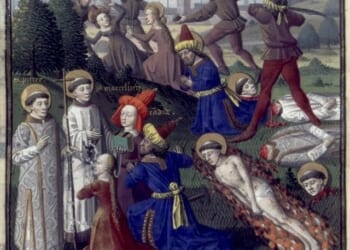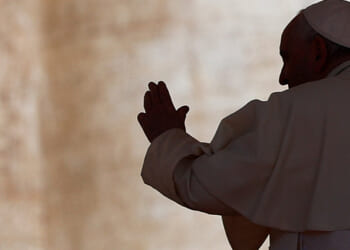Peace will not come through dialogue with Putin, a man who sees war as his lifeline. It will come only by applying the principle of “peace through strength.”
For the past quarter-century, nearly every major Western politician—from Barack Obama and Angela Merkel to Emmanuel Macron and even Volodymyr Zelenskyy—came to power promising to “reset” relations with Russia. Campaigns were won on hopeful slogans of diplomacy, dialogue, and mutual understanding. And almost immediately after taking office, these leaders reached out to Moscow, eager to build cooperation and extend the hand of peace, believing that Vladimir Putin, too, wanted partnership based on mutual respect and common interests.
But sooner or later, each one of them hit the same wall: Putin’s inexplicable hostility, his rejection of compromise, and his consistent refusal to abide by even the most reasonable, mutually beneficial agreements. Even when a “win-win” was clearly on the table, Putin chose confrontation. And when treaties were signed, they were often ignored or violated by the Kremlin.
This pattern is not the result of a personal flaw or a series of policy miscalculations in the West. It reflects a deeper reality: the collapse of the Soviet Union did not dismantle the foundations of Russian imperialism. The Kremlin’s current leadership is shaped not by democratic values, but by the worldview of the KGB—a worldview that sees openness as a threat, and compromise as a trap.
Employees of the Soviet and Russian security services have a saying: “There’s no such thing as a former KGB officer.” Putin has not changed the system he inherited—he has refined and entrenched it. He has pulled Russia off the democratic track and set it on the course of renewed totalitarianism. In doing so, he has become a prisoner of the fear he has cultivated—fear inside his own country, and fear he seeks to project outward into the free world.
There are three interrelated things Putin fears more than anything else:
- A free and sovereign Ukraine—because without Ukraine, the dream of a restored Russian empire collapses.
- A democratic Russia—because democracy would empower the Russian people and lead to the disintegration of empire.
- And justice—because the fall of the empire would expose Putin to prosecution for the many crimes he has committed against his own citizens and against neighboring nations.
That’s why, for Putin, war is not a last resort—it’s his preferred instrument of power and control. War gives him a pretext to crush internal freedoms, concentrate power, and attempt to subjugate Ukraine. It also activates the integrative function of conflict—rallying Russians around the flag, around Putin. For Putin, permanent conflict is not a liability. It is a necessity. It is the foundation of his regime, the condition of the empire’s survival—and of his own.
This makes genuine negotiation impossible. Not because peace is unattainable, but because Putin fundamentally does not want peace. He sees diplomacy as weakness and compromise as an invitation to push harder.
As the late Russian dissident Vladimir Bukovsky explained in one of his last interviews: “The first thing people must understand when dealing with the KGB is this — you cannot make a deal with them. Every Western leader failed here, except Reagan. You are either their enemy or their agent — there is no middle ground.”
Bukovsky shared a revealing story from his time in the Soviet camps. An old Ukrainian schoolteacher, kind and refined, spoke five languages—yet he couldn’t understand why he kept being thrown into solitary confinement. The prisoners eventually realized what was happening: the camp officer—a KGB man—was trying to recruit him. And the teacher, too polite to tell him to go to hell, kept being punished. He didn’t speak the only language the KGB understands—the language of firm rejection.
So Bukovsky intervened. He spent three hours teaching the man how to deliver a decisive and vulgar “no” in Russian—not just the words, but the posture, the tone, the defiance. At first, the teacher struggled. But eventually, he learned. The next time the officer called him in, he responded with the full expression of resistance. He was thrown into solitary one last time—and after that, they left him alone.
“This is how it works,” Bukovsky said. “You either send them packing — or they will break you. There is no other way.”
This is not a relic of the Soviet past. It is the lived logic of today’s Kremlin. The system that trained Putin still defines his rule—and shapes the behavior of those around him. The empire was never dismantled; it was merely rebranded.
Anyone who wants to build a lasting peace must begin with that understanding. Peace will not come through dialogue with a man who sees war as his lifeline. It will come only by applying the principle first defined and successfully implemented by President Ronald Reagan—and reaffirmed by President Donald Trump—“peace through strength.”
About the author: Pavlo Zhovnirenko
Pavlo Zhovnirenko is Chairman of the Board of the Center for Strategic Studies in Kyiv, Ukraine.
Image: Free Wind 2014 / Shutterstock.com


















